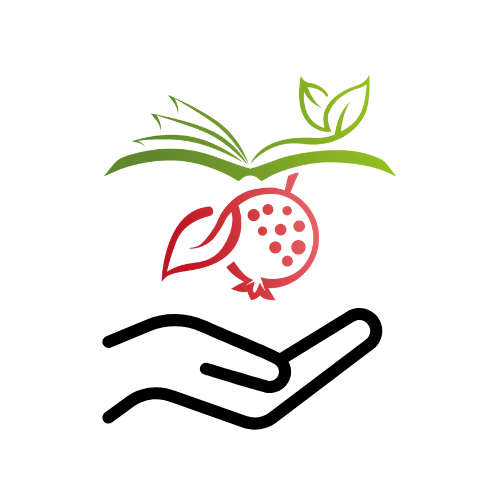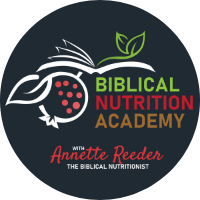
I have a lot of clients who ask me, “Is bread bad for you?” I understand the confusion, given current health crises in our culture and books warning people about wheat. That’s why today I’m tackling the question and expanding on: Is wheat bad? Wheat in the Bible & debunking myths about wheat.
Wheat has been demonized in recent history as one of the worst types of carbs. The claim is that wheat is as harmful and addictive as drugs like heroin and crack.
If we examine this declaration just on the surface, we realize right off there’s something crumbly about it. Yes, we see massive obesity, type 2 diabetes, and heart disease. However, we don’t see people selling everything they have, breaking the law, or harming loved ones to get wheat.
“Well, that’s because it’s legal,” someone might say.
Still, we don’t have life-controlling cravings. Not that our bodies don’t desire more of what we give it, but the appetite for wheat is nothing even close to that of drugs like those mentioned above.
In addition, there’s no scientific data or studies to support these claims. Those declaring that wheat is harmful don’t have the science or evidence to back them up.
When one takes a look at the studies used by certain authors to try to make wheat the enemy, the conclusions and results of those studies in no way show what some people allege.

Is Wheat Bread Unhealthy?
Quite the contrary, grains, including wheat, are the most nutrient dense food groups available. Wheat and other grains are some of the most healthful foods for good gut health, which we know is essential for overall health.
While there is a small percentage of people who are genetically gluten intolerant, the majority of people can not only tolerate gluten and wheat, but actually benefit from wheat being a regular part of the diet.
When it’s healthy wheat, that is.
Not only is whole wheat bread made from wheat berries NOT harmful, it’s BENEFICIAL to your body!
Wheat Benefits
Wheat berries include a variety of vitamins, minerals, and antioxidants.
Just to name a few, whole wheat berries have an abundant supply of iron, manganese, and zinc, all of which help boost our immune system.
They also have Vitamin E, which has been proven to help protect against a variety of cancers.
Then there’s the B vitamins. These are aid with digestion, brain health, mood stabilization, sleep quality, and slowing down the aging process.
I definitely want more of all of those! Don’t you?
Check out my video where I talk more about the benefits of wheat.
Whole Wheat Flour
There’s a major difference between super-processed (and even bleached!) wheat and this amazing grain in its natural form.
Once again, we’re back to the 3 Principles of Healthy Living, the second of which is eating foods as closely as possible to the way God created them.
It’s not wheat that’s the problem, it’s what we’ve done to it.
Many (not all) people who thought they were wheat or gluten intolerant, find that they can eat wheat with no problems when it’s freshly milled.
Not only is wheat nutritious, but is a storable food when left whole and intact - an important note for those who plan and prepare for major upheavals in life.
Unfortunately, the concept of easy, convenient, and quick when it comes to food sucks in and traps people.
Grocery store shelves hold dozens of varieties of bread, but processing strips almost all of them of their naturally occurring nutrients.
Hybridization Of Wheat
So, is it the processing of wheat once it’s harvested or is the problem with the wheat itself?
Contrary to what some people teach, there is no such thing as genetically modified wheat. Nowhere in the world is it available commercially.
In contrast to GMO processes, wheat has been crossbred. This means that two or more types of wheat have been used to fertilize one another to encourage desired traits.
Nature does this all the time. A simple basic knowledge of biology and genetics demonstrate that plants in nature fertilize each other with like kinds through seeds and pollen.
Hybrids of wheat created by scientific methods fit within good food, just like wheat in the Bible, because the process mimics how God created vegetation to work.
But you may still wonder, what’s the most ancient wheat grain? What was the wheat in the Bible?
The oldest wheat is Einkorn.
The trail from Einkorn to what we have available is a fun journey!
- Einkorn crossed with another grass or grain and produced Emmer.
- Emmer crossed naturally to produce spelt, which cross pollinated too.
- The process has continued throughout time up through today.
The goal of scientifically crossbred wheat is to produce stronger, more viable strains. However, there are claims that the man-instigated hybrid wheat has less protein and more gluten.
Discover more about einkorn wheat in this video.
Gluten Intolerance
Before we dive into this, let’s talk about what gluten is. Gluten is a culinary term for the stretchy substance that forms when wheat flour is hydrated.
This stretchiness can occur by simply adding some water to flour and letting it sit for a while. Try it out!
Wheat's unique series of protein that causes it to become stretchy when liquid is added makes it unique from all other grains.
Gluten isn’t something that’s been added by man. Gluten results naturally from how God created wheat to behave.
Wheat has been bred to have a higher content of protein, but the growing season - or amount of rain - impacts the protein content more than the strain. The more the rain, the lower the protein content and “softer” the wheat.
Again, we get into a problem when we highly process foods. There is a difference between the gluten in bread found in stores and gluten in freshly milled grains.
What Are Whole Grains?

Let’s dig a little deeper to understand why.
Grains have 3 components:
1 - Bran (outer)
2 - Germ (inner)
3 - Endosperm
The bran and germ are very coarse, so during commercial milling these parts of the grain are separated out, leaving only the endosperm.
The endosperm is protein and starch. So, it has the components needed as flour to make bread.
However, the majority of the nutrients found in grain are located in the bran and germ. Vitamins, minerals, fiber, phytochemicals, fatty acids, enzymes, good organisms are all found here.
This is why white flour isn’t healthy. It’s missing all these nutrients!
God never intended us to eat those proteins and starch without the fiber and other nutrients to help our bodies process them properly.
Instead, He created the perfect food, good for us in its original form. It goes against the majority of our culture and our “quick and easy” lifestyle, but milling whole grain at home really is best.
This is the only way to get all of the nutrients God infused in wheat for our good.
I hope I’ve helped make it clear. Whole grain wheat makes the healthiest bread because God designed it to have almost every essential nutrient we need to live and thrive!
What About Whole Grain Bread?

If commercial plants milled the entire grain, these would be great. However, the machines are set up to separate the bran and germ at the beginning of the process. So, to get “whole grain” flour, they have to be added back in.
This doesn’t sound like getting as close to God created wheat to me.
Processed wheat is NOT the same as wheat in the Bible.
There’s no telling what the percentage or ratios are.
Also, this is another area where reading labels is important. Many “whole grain” breads have gluten listed as an ingredient.
Now, we discussed that gluten is a culinary term for how flour reacts when liquid is added to it, so how is gluten an ingredient?
Scientists have figured out how to isolate the protein sequence that causes the stretchy reaction and can add that protein sequence into milled flour.
Again, this is a process of trying to add things back in that were included originally, but in different amounts and ratios.
God created wheat to have the perfect balance of protein, starch, fiber, and all its other nutrients. Man can try to mimic His perfect creation, but will never succeed.
When we switch to true whole grain bread, it won’t be a detriment to our health, but instead help us attain optimal health. And this allows us to be about God’s will and mission for our lives.
Wheat In The Bible

Spelt and barley are mentioned in the Bible. These are types of wheat (as are rye, durem, kamut). Wheat itself is also mentioned.
Wheat and barley are specific to biblical feasts and celebrations.
Bread was also a part of everyday life for the Israelites, Jesus, and His followers.
Bread is mentioned almost 300 times in scripture!
Jesus broke bread with the disciples, other followers, and the curious on a regular basis. It was such an essential part of life, He used bread as a metaphor to show people our need for him.
Jesus said to them, “I am the bread of life; the one who comes to Me will not be hungry, and the one who believes in Me will never be thirsty.” John 6:35
“I am the bread of life.” John 6:48
“I am the living bread that came down out of heaven; if anyone eats of this bread, he will live forever; and the bread also which I will give for the life of the world is My Flesh.” John 6:51
Can we live without wheat?
Yes. But we don’t have to. Nor is it recommended for people who don’t have a genetic gluten sensitivity like celiac disease.
When we take Scripture in it’s unadulterated form - meaning reading, studying, and meditating on it for ourselves - we have what we need for an abundant life.
When we eat wheat in its unadulterated form - freshly milled - we have what we need for abundant health.
Of course, that doesn’t mean we gorge ourselves on bread or eat it to the exclusion of all the other wonderful array of garden vegetables and fruits God’s given us. (See principle 3!)
It means that fresh, living, whole grain bread is a part of a balanced diet.
Is Wheat Bread Good for you?
We’re back to this question. I hope you can echo my enthusiastic, “YES!”
It’s clear that wheat is not the evil entity it’s been made out to be. Wheat today is not that different from wheat in the Bible.
No, the bread we eat today isn’t the same bread as from biblical times (or the 2000 years since, up until the industrial revolution). However, that’s because of processing, not the wheat itself.
It’s clear, both scientifically and biblically, that whole grain wheat bread is good for us.
We can praise the Lord for His perfect design and His love for us in all of His creation, in which He’s given us everything we need for a vibrant, healthy life.
Let’s celebrate!
Thank God for wheat in the Bible and wonderful bread today. Then check out this recipe to share the wealth with your family, neighbors, or friends.
***Before I close, I want to give a special thank you to Sue Becker of the Bread Beckers for her consistent and faithful commitment to educating me and others on the truths about wheat and God’s design for it. Thank you, Sue, for all you do!








You can say what you want about hybrid wheat being good for us , but I can tell you this much , God said right at the beginning that only the seed bearing plant with it’s own self replicating seed will be food for us, so that comment definitely rules out any such hybrid whether naturally occurring or man made, they have all become defiled, so you can big up hybrid emmer and spelt all you like , but god’s own wheat is, was , and will continue to be Einkorn which is the only true wheat , that is pollinated with it’s own kind, so on that note all of our modern wheat whatever name it comes under, and whatever health benefits you claim it has has been corrupted and defiled by man.
My suggestion is that if you truly believe in God then you will stick steadfastly to Einkorn the one and only true wheat that has all the body and digestion needs. This same principle of not mixing seed (hybridisations) from what god says applies to all foods. So you need to go back to the beginning and check again what God says, not what man says or thinks or believes. If you don’t believe God is right on this subject you are all going straight to hell. So think again about what you are telling people.
Hi Donna – Here is our article all about buying grains online: https://thebiblicalnutritionist.com/best-places-to-buy-bulk-grains/
I’m searching your content for a source that you purchase your wheat berries from! Can you please let me
Know where I can find that information, or should I just google organic wheat berries? There are many to choose from curious your favorite
I am glad that this article was helpful to you!